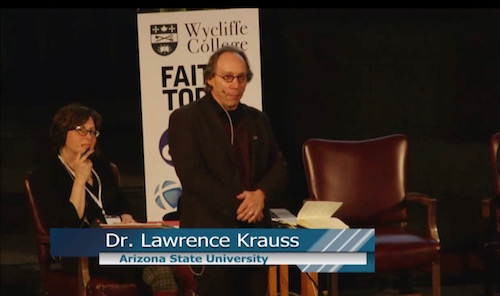 Faith & Science
Faith & Science
 Intelligent Design
Intelligent Design
"Never Mind What You’re Saying. What I Say You’re Saying Is Stupid" — Tom Gilson Nails It

Someone in the media or science worlds correctly characterizing ID is such a rare occurrence that when it happens, I get a surreal feeling, as if it were all just a sweet dream that will soon dissipate with the crowing of the alarm clock. That was my response on reading Tom Gilson’s post at The Stream, commenting on the recent debate at the University of Toronto between Stephen Meyer and Lawrence Krauss. Check this out:
In his opening statement Meyer defined ID as the idea that certain features of the natural world are better explained as the product of a guiding transcendent intelligence than as the result of unguided natural processes. By way of example he showed that new functional protein configurations, which Darwinian evolution must discover by chance, actually cannot be discovered that way. Not only that, but these proteins possess new and functional information — the sort of thing that in other contexts we always ascribe to intelligent causes. Therefore it’s reasonable to conclude that this biological information (and other information-rich features of life) also was the result of an intelligent design.
That’s ID in the briefest possible nutshell.
Gilson must be a genius. That is exactly accurate!
Seriously, being able to describe a deep idea like intelligent design in a paragraph is no mean feat. And the fact that ID critics habitually mischaracterize what we say is Gilson’s point. As he observes, Krauss spoke first in the debate. Before the audience heard a single word from Stephen Meyer, Krauss had already misled them by presenting a straw man version of what he expected Meyer to say. Gilson:
In effect, Krauss’s message to Meyer was, “What I say you’re saying is pretty stupid.”
Or better yet, as the headline for the piece says: “Intelligent Design Critics: ‘Never Mind What You’re Saying. What I Say You’re Saying Is Stupid.'”
This prompts, as it always does, the obvious question: Why do critics interact, so often, with what we don’t say rather than with what we do say? Gilson’s answer: “The real deal is much harder to dismiss. Maybe that’s why people like Krauss appear intent on avoiding it at all cost.” That too sounds right.
